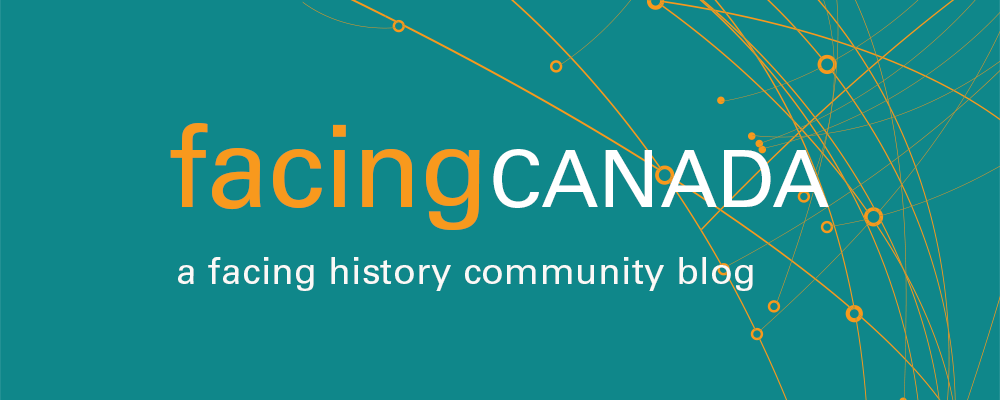When I landed my first job as an English teacher at an inner-city high school, I knew I wanted to use the power of stories to allow my students to explore the problems that face our world. Working with students who were at-risk academically, socially, and emotionally, I had my work cut out for me. But I really was not prepared for the preconceptions that my students held, and how difficult it would be to work through them.
With my grade 11 college-level class, I decided to use Elie Wiesel’s Night as our main text of study. Before delving into Wiesel’s story, we followed the Facing History model of building community and exploring the idea of identity. We began by exploring our own identities, and how these identities are reflected in our appearances and personalities. Then we moved into a discussion around what happens when our identity is taken away from us, and how this can become a slippery slope to discrimination and genocide.
Before we got into the case study of the Holocaust, we read some coming out stories. It was my intention to use this as a bridge between a discussion on our own identities and that of Wiesel in the 1930s, but I did not anticipate that the preconceptions of my students would take us down a different path.
We read a story about a young Muslim woman who recently moved to the United States from Saudi Arabia with her parents, and was struggling to come out to her very traditional father. This prompted a strong response from some of the students in my class.
During our discussion after reading, one student raised his hand and said that he found this story difficult to read. When I asked him to elaborate on his feelings, he stated, “I just think that all gay people are kidding themselves, and that made it difficult for me to take this story seriously.” After a moment of shocked silence filled the room, another student jumped in to refute this comment in a calm and mature manner. (I wish I could remember what this student said, but instead I more vividly recall attempting to overcome the shock of hearing the above statement spoken so directly by one of my own students).
After I brought myself back into the moment, I somehow managed (with the help of some of my students) to wrap up this conversation. After class, however, I found myself second guessing my choice of text. If this was how some students were going to react to a controversial short story, how would they react to Wiesel’s experiences? How would they interact with history that is so personal for me? And how would I respond to reactions of my students if they were hostile towards this history?
The next day, I introduced my students to some of the history of the Holocaust in preparation for reading Wiesel’s text. After class, that same student who made the shocking comments in class the previous day came up and asked why we had just spent the last 60 minutes discussing the Holocaust (he was late to class that day, and missed my introduction to the text). Our conversation went something like this:
Me: “Well, we’re going to be reading a story about a man who lived through the Holocaust.”
Student: “We’re reading an entire text about the Holocaust?”
Me (bracing myself for an answer that may offend, and frantically trying to come up with an
appropriate response to an offensive remark): “Yes.”
Student: “Well, I’m really looking forward to reading that.”
Relieved, I proceeded to tell the student a bit more about the text we would be beginning the next morning. Two days later, the student came up to me while the class was reading and asked what he should do when he was finished the text. Shocked at the possibility that a student, who told me at the beginning of the year that he didn’t like reading and rarely read outside of school, could have possibly read the entire text the previous night, I proceeded to ask him about some of the experiences that Wiesel recalls towards the end of the text. He had read the entire thing all right.
In that moment, I realized the power that a good story could have on the life of a student. Not only did this student spend his entire night reading, but he found a story he could relate to, and enjoyed because of this. (For any non-English teachers out there, this is an English teacher’s moment of ultimate success).
I’m interested in hearing any other powerful stories that students have related to. Also, what are some strategies that you’ve had success with in responding to controversial statements, such as the one made by this student, which catch you off guard while you’re in front of the class?

.jpg?height=100&name=Blog%20photo%20(1).jpg)